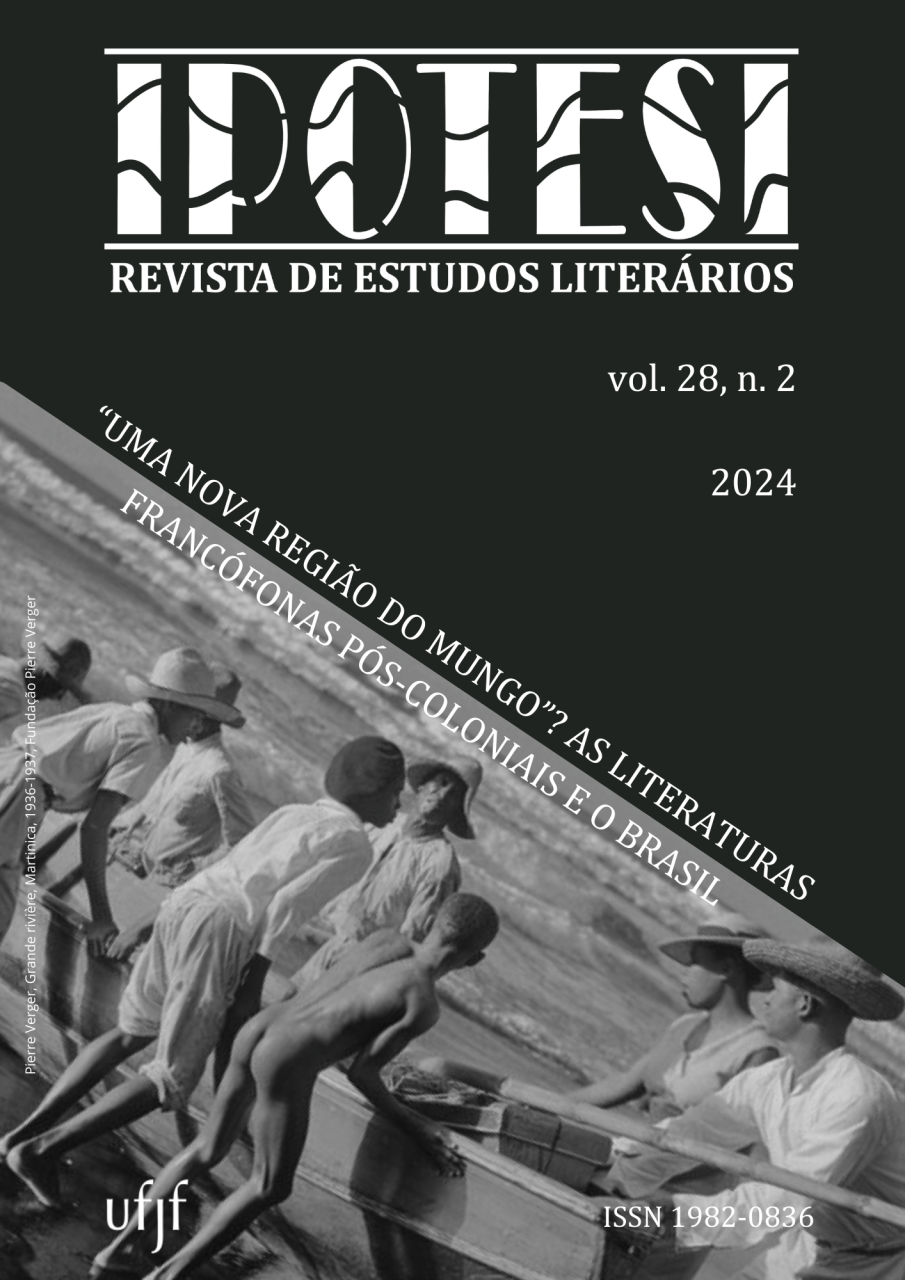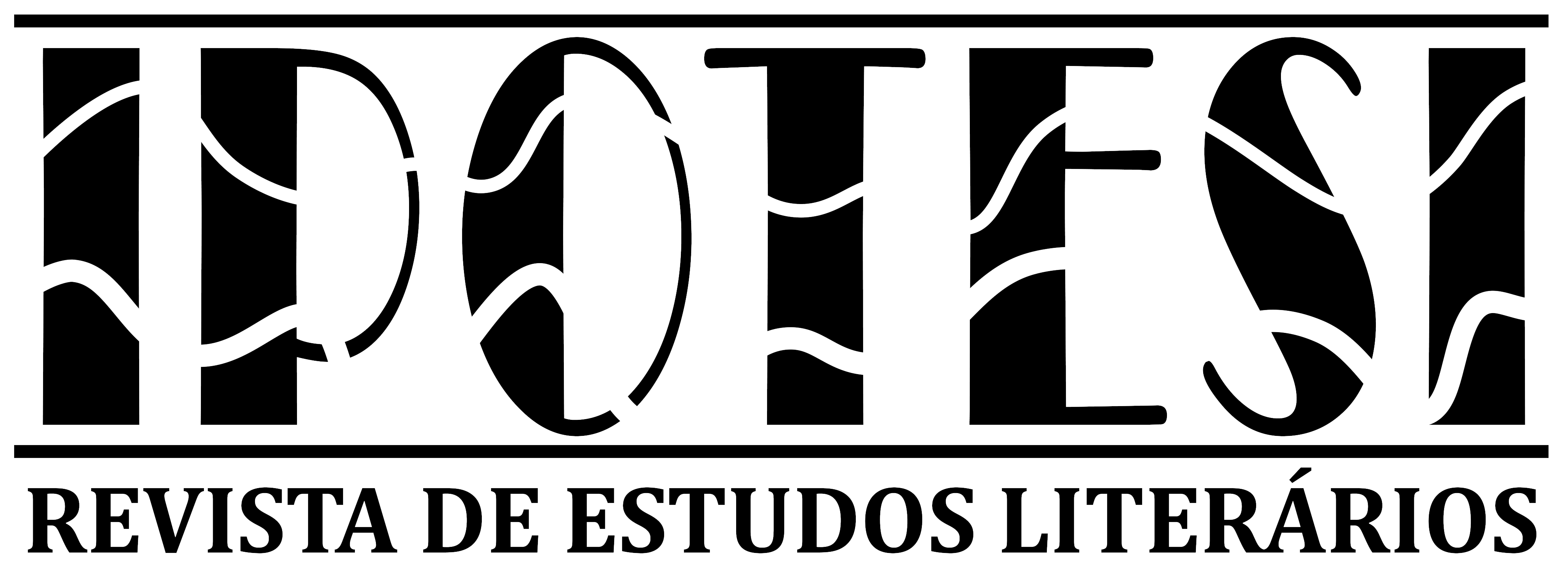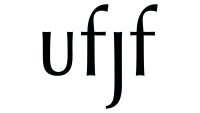Metamorphoses of a Rwandan woman in self-narratives
the emancipatory journey of Scholastique Mukasonga
DOI:
https://doi.org/10.34019/1982-0836.2024.v28.46262Keywords:
Scholastique Mukasonga. self-narratives. self-definition. relational autonomy. practices of freedom.Abstract
This article reflects on the story that the Rwandan author, Scholastique Mukasonga, writes about herself in her book A Beautiful Diploma. The narrative describes her experiences of fighting for social emancipation, autonomy and intellectual freedom, symbolized by her achievement of a diploma recognized in France, the country to which she emigrated after graduating in Burundi. Defying prejudices and images of control, Mukasonga actively elaborates her metamorphosis, designing other alternatives for her life, different from those supposedly already destined for her. As a transclass African woman in France, her self-definition demonstrates the courage to identify the aspects and dispositifs of power that limit her self-realization and, at the same time, to create tactics of action that allow, in a situated manner, the care of herself and others as an ethical responsibility. We seek to highlight how a black woman, survivor of a genocide, emancipates herself through her writing and simultaneously redefines the social and loving bonds that support those who inhabit her days and nights.
Downloads
References
ALLEN, Amy. Emancipação sem utopia. Novos Estudos Cebrap, n. 103, 2015, p. 115-132.
ALLEN, Amy. Foucault on power: a theory for feminists. In: HEKMAN, Susan. (Ed.). Feminist interpretations of Michel Foucault.State College: Pennsylvania State University, 1996. p. 265-282.
ALLEN, Amy. Foucault and the politics of our selves. History of the Human Sciences, Thousand Oaks, v. 24, n. 4, p. 43-59, 2011.
ALMEIDA, Mariléa de. Devir quilomba. São Paulo: Ed. Elefante, 2022.
BIROLI, Flávia. Gênero e desigualdades. São Paulo: Boitempo, 2008.
BIROLI, Flávia. Autonomia, opressão e identidades: a ressignificação da experiência na teoria política feminista. Revista Estudos Feministas (UFSC. Impresso), v. 21, p. 81-105, 2013.
BIROLI, Flávia. Autonomia, preferências e assimetria de recursos, RBCS, v. 31, n. 90, 2016, p. 39-57.
BUTLER, Judith. Relatar a si mesmo. Belo Horizonte: Autêntica, 2015.
BUTLER, J. Precarious Life, London: Verso, 2004.
BUTLER, J. “Rethinking Vulnerability and Resistance”, in BUTLER, J.; GAMBETTI, Z.; SABSAY, L. (orgs.) Vulnerability in resistance. London: Duke University Press, 2016.
COLE, Allison. All of us are vulnerable, but some are more vulnerable than others, Critical Horizons, v. 17, n. 2, 2016, p. 260-277.
COLLINS, Patrícia Hill. Pensamento feminista negro conhecimento, consciência e a politica do empoderamento. São Paulo: Boitempo, 2019.
FASSIN, Didier. and MEMMI, D. (eds.). Le gouvernement des corps. Paris: Éditions de l’École des Hautes Études en Sicences Sociales, 2004.
FASSIN, D. At the Heart of the State: the moral world of institutions, London: Pluto Press, 2015.
FERRARESE, Estelle. Vulnerability: a concept with which to undo the world as it is? Critical Horizons, v. 17, n. 2, 2016, p. 149-159.
FOUCAULT, Michel. Poder de morte e direito sobre a vida. In: ______. História da Sexualidade, v. 1, A vontade de saber. Rio de Janeiro: Graal, 1980, p. 127-152.
FOUCAULT, Michel. Usage des plaisirs et techniques de soi. Le Débat, n. 27, 1985, p. 46-72.
FOUCAULT, Michel. “Les techniques de soi”, in: ____, Dits et Écrits IV, 1980-1988, org. por Daniel Defert e François Ewald. Paris: Gallimard, 1994a, p. 783-813.
FOUCAULT, Michel. “ L’éthique du soin de soi comme pratique de la liberté ”, in: ____, Dits et Écrits IV, 1980-1988, org. por Daniel Defert e François Ewald. Paris: Gallimard, 1994b, p. 708-730.
FOUCAULT, M. O sujeito e o poder. In: MOTA, M. B. da. (org.). Ditos e escritos, v. 9: genealogia da ética, subjetividade e sexualidade. Rio de Janeiro: Forense Universitária, 2014, p. 118-140.
FOUCAULT, Michel. O enigma da revolta. São Paulo: n-1 edições, 2019.
GAGNEBIN, Jeanne Marie. História e Narração em Walter Benjamin. São Paulo: Ed. Perspectiva, 1999.
LAUGIER, Sandra. L’autonomie et le souci du particulier. In: JOUAN, Marlène; LAUGIER, Sandra (dir.). Comment penser l’autonomie? Entre compétences et dépendances. Paris: PUF, 2009, p. 407-432.
MACHADO, Ida Lucia. Narrativas de vida: saga familiar & sujeitos transclasses. Coimbra: Grácio Editor, 2020.
MATOS, Marlise. Democracia, sistema político brasileiro e a exclusão das mulheres: a urgência em se aprofundar estratégias de descolonização e despatriarcalização do Estado. Revista do Observatório Brasil da Igualdade de Gênero, v. 7, 2015, p. 24-35.
McLAREN, Margareth. Resistência e revolução: “nem tudo é igualmente perigoso”. In: RAGO, Margareth; GALLO, Sílvio (orgs.). Michel Foucault e as insurreições: é inútil revoltar-se? São Paulo: Intermeios, 2017, p. 351-362.
McLAREN, Margareth. Foucault, feminismo e subjetividade. São Paulo: Intermeios, 2016.
MUKASONGA, Scholastique. A mulher dos pés descalços. São Paulo: Editora Nós, 2017.
MUKASONGA, Scholastique. Baratas. São Paulo: Editora Nós, 2018.
MUKASONGA, Scholastique. Nossa Senhora do Nilo. São Paulo: Editora Nós, 2017.
MUKASONGA, Scholastique. Um belo diploma. São Paulo: Editora Nós, 2020.
OKSALA, Johanna. O sujeito neoliberal do feminismo. In: RAGO, M.; PELEGRINI, M.(orgs.). Neoliberalismo, Feminismos e Contracondutas: perspectivas foucaultianas. São Paulo: Intermeios, 2019, p. 115-138.
OKSALA, Johanna. Feminism and Neoliberal Governmentality, Foucault Studies, n. 16, 2013, p. 32-53.
OSHANA, Marina. “How much should we value autonomy”. Social Philosophy & Policy, 2003, p. 99-126.
PELBART, Peter Pál. Subjetivação e dessubjetivação. In:_____. O avesso do niilismo: cartografias do esgotamento. São Paulo: n-1 edições, 2013, p. 225-236.
RAGO, Margaret. Foucault, o neoliberalismo e as insurreições feministas. in RAGO, M. ; GALLO, S. (orgs.) Michel Foucault e as insurreições: é inútil revoltar-se?, São Paulo: Intermeios, 2017, p. 363-374.
RAGO, M.; PELEGRINI, M.(orgs.). Neoliberalismo, Feminismos e Contracondutas: perspectivas foucaultianas. São Paulo: Intermeios, 2019.
Downloads
Published
Issue
Section
License
Copyright (c) 2024 IPOTESI – REVISTA DE ESTUDOS LITERÁRIOS

This work is licensed under a Creative Commons Attribution 4.0 International License.










